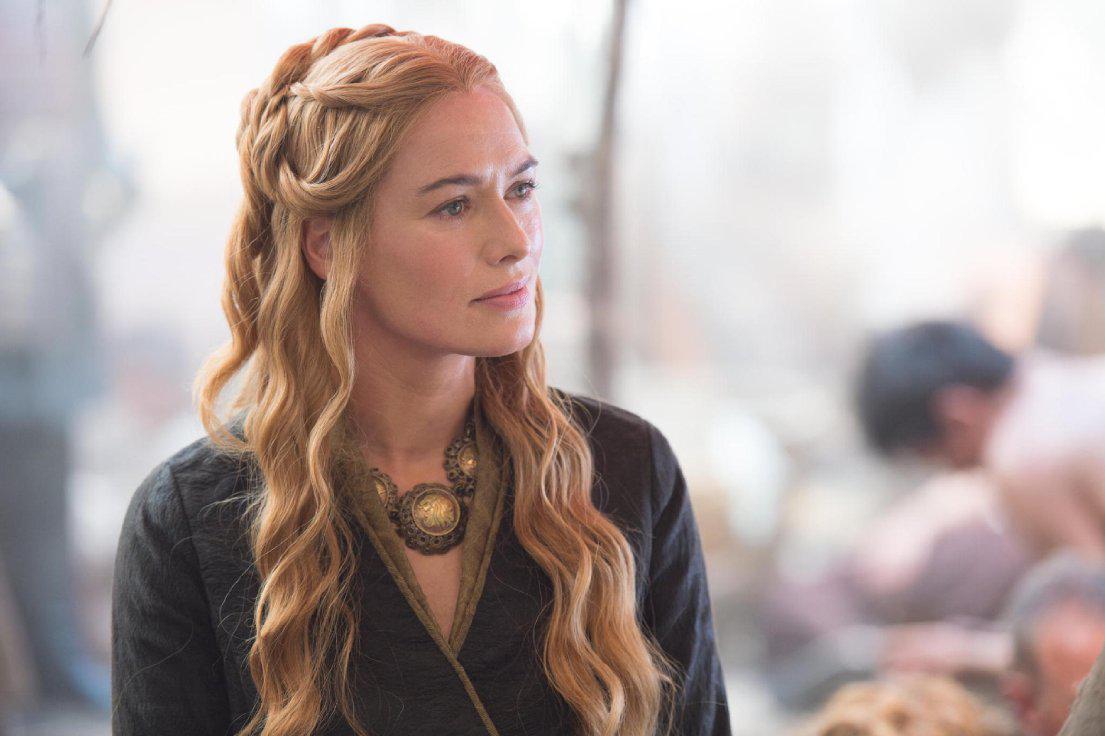This article originally appeared in Vulture.
Poor Shireen Baratheon. She’s covered in greyscale, stuck in a depressing ice fortress with no other kids to play with, and worst of all, right when she seems to be making friends with Sam and Gilly (the Damian and Janis Ian of the Wall), along comes her mom to ruin all the fun, spouting old-fashioned ideas about Wildlings and making Shireen look super-lame. It could have been Friday night at your local mall—just an overprotective mom who isn’t too sure about those black-clad teens her daughter’s been hanging out with—if not for all the talk about war, murder, and greyscale. And that’s the way most parent-child interactions go on Game of Thrones: at once achingly familiar and terrifyingly unreal.
Families are the basic building block of GOT’s narrative: This family allies itself with that family, so that they can take down that other family over there. They’re embedded in how we talk about the show; the Red Wedding wasn’t a bunch of soldiers from the North and the Riverlands killing some other Northmen, it was the Boltons and Freys betraying the Starks. Like in the real Middle Ages, the immediate family is the only faction that can be trusted; as Cersei told Joffrey in season one, “Anyone who isn’t us is the enemy.”
But for most lordly parents we’ve seen, caring about a dynasty isn’t the same thing as caring about the actual people who make it up. When Cersei vents to Jaime about their daughter in Sunday night’s episode, she seems to be driven by pride rather than genuine concern for Myrcella. Tywin Lannister didn’t set a great example—he went to war to get Tyrion back, but as he reminded Jaime at the time, that was purely about protecting the Lannister brand; once his youngest son was free, Tywin unleashed a campaign of emotional abuse that culminated in him trying to frame Tyrion for murder. (And also sleeping with his ex.) And while Tywin valued Jaime and Cersei, it wasn’t love in any recognizable sense; he treasured them the way you’d treasure a set of golf clubs, or a new car. Randyll Tarly’s not the only parent to hope his child follows in his footsteps, but he is probably the only one to threaten to kill a disappointing child if he doesn’t exile himself on his 18th birthday. Walder Frey broke the highest social code in the land to get revenge on Robb Stark for snubbing his daughters, but their feelings were hardly his highest concern; there are better ways of standing up for your children than making their wedding day synonymous with mass slaughter.
If it’s bad when parents in Westeros care too much about their family legacy, what happens when they don’t is even worse. As far as bad parents in GOT go, it’s hard to top the late, never-lamented Craster, who was so unconcerned about his name living on that he gave all his sons to the White Walkers, just so he could have his daughter-wives all to himself. (Heck, you could make the case that even the White Walkers treat Craster’s kids better than Craster himself did. Look at how tender they are!)
So what does a good parent in Westeros look like? A lot like ones we know in real life. You teach your children to be the best versions of themselves, as Ned Stark did. You encourage them to follow their dreams no matter how unconventional, as Brienne’s father did. You set concrete goals and boundaries and reward them for stepping up, as Roose Bolton does. (Yes, Roose Bolton is an evil man, but he’s a pretty good dad to his evil son.) You see their flaws clearly and give them space to make mistakes, as Catelyn Stark did to Robb. And you love them unconditionally, as Stannis does Shireen.
This won’t mean that you won’t mess them up. All parents mess up their children, that’s the curse of parenthood. Ned Stark’s rigid sense of honor was like a family history of cancer; Robb inherited it, and he died too. Catelyn Stark straight-up abandoned two young children; one of them went feral and the other’s living in a tree. Oberyn Martell loved all his girls, but in the end, he loved revenge more.
But if you think all that sounds rough, be thankful your children are human. If there’s anything Game of Thrones teaches us, it’s that being a mother is tough, but being a mother of dragons is the toughest of all.
